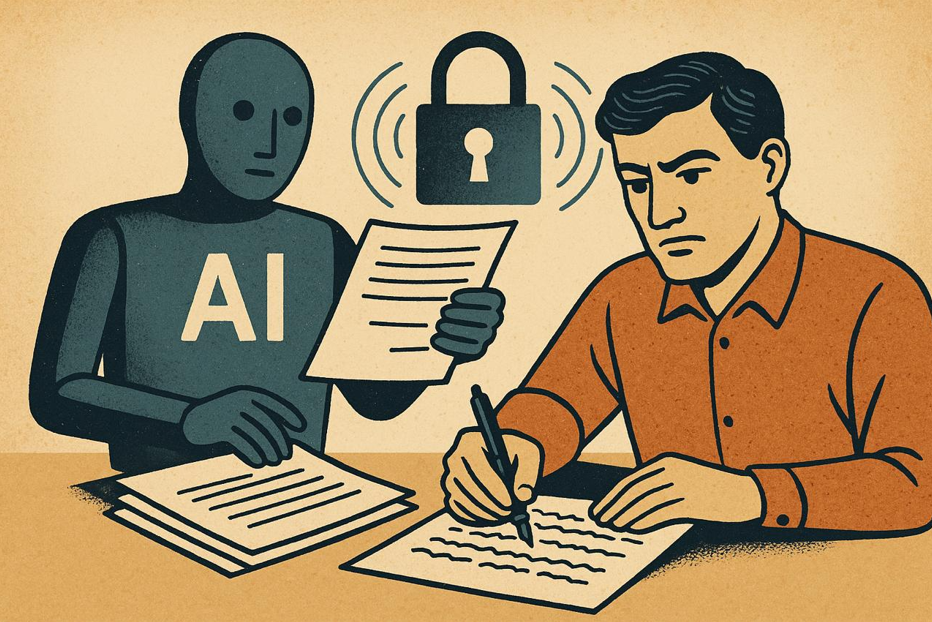Writers have always lived with a peculiar mix of arrogance and insecurity. We believe our words can move mountains, yet we fear they may vanish in the flood of other voices. Now, along comes artificial intelligence—this strange, humming machine that promises to polish our drafts, tighten our plots, and even whisper suggestions when our imagination falters.
Tempting, isn’t it? Feed your half-baked manuscript into ChatGPT, and watch it return a sharper, cleaner version. But then comes the unease: What if my story is stolen? What if the very machine I used to edit my novel turns around and hands my sentences to someone else?
The Fear: A Digital Pickpocket
Let’s be honest: writers are paranoid creatures. We lock our notebooks, we guard our outlines, and we eye fellow authors with suspicion, worried they might “borrow” too freely. Now multiply that fear a thousand times when dealing with an AI that swallows millions of words a day.
It feels like leaving your diary with a stranger who never blinks. Will my confession show up in someone else’s poem? Will my plot twist become the scaffolding of another person’s bestseller?
The Reality: Not Quite the Monster
Here’s the truth, stripped of hysteria: ChatGPT and its cousins are not designed to memorize your novel and regurgitate it for the next user. They don’t have a filing cabinet of your drafts waiting to be handed out like free samples. Instead, they work on probabilities—predicting the next word in a sequence based on patterns in language.
And, crucially, OpenAI has made it clear: user inputs are not used to train the model by default. On professional and enterprise plans, the guarantee is even stronger—your words are your own, not fodder for the machine.
So no, your protagonist won’t wander off into someone else’s manuscript simply because you let ChatGPT clean up a few chapters.
The Law: Still Catching Up
But here’s where it gets murky. Copyright, that trusty guardian of creativity, stumbles a bit when AI enters the picture. Your draft, of course, is yours—protected the moment you write it. But what about the passages rewritten by AI? Does that text belong to you, the machine, or no one at all?
The legal consensus, for now, is this: copyright requires human creativity. If you are steering the ship—directing, editing, curating—then the output remains yours. AI, in this sense, is like a very advanced spellchecker. It does not “author.” It assists.
But laws are slow, and technology is fast. Writers will have to watch the courts and publishers to see how the rules evolve.
The Practical Wisdom
So what’s an author to do? Use AI wisely, not recklessly.
- Don’t dump your entire manuscript if you’re squeamish; experiment with scenes or chapters.
- Keep backups offline, where only you hold the keys.
- And remember that publishers may one day ask: how much of this book is yours, and how much belongs to the machine? Be ready with an honest answer.
The Writer’s Voice Endures
I confess, I use AI in my own work. Not to write for me, but to nudge me when I’m stuck, to point out the lazy sentences I didn’t see. Do I fear it? A little. But I fear mediocrity more.
At the end of the day, no machine can replicate the madness of a writer pacing the room at 3 a.m., muttering lines to themselves. No algorithm knows the heartbreak that sits behind a sentence or the joy that sparks a scene.
AI may polish our prose, but it cannot own our voice. That remains stubbornly, gloriously human.
This article was written with the assistance of Chat GPT



